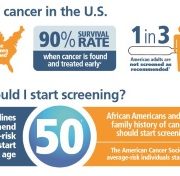Celiac Disease: What You Need to Know
Celiac disease is an immune disorder that gluten triggers. For people with the disease, it causes an immune response that damages the small intestine when eating gluten, which is found in foods like wheat, barley, and rye. Here’s an overview of celiac disease.
Causes and Risk Factors
This disease causes an immune response when you consume gluten. This response attacks the lining of the small intestine and leads to inflammation. This damages cilli, hair-like structures that line the small intestine. Cilli are key in absorbing nutrients from food; as such, celiac disease can cause problems with nutrient absorption and lead to malnourishment.
Celiac disease often runs in families. The causes of the disease are thought to be a combination of genes and consuming gluten. Sometimes celiac can be activated after a viral infection, childbirth, pregnancy, surgery, or severe stress. There are a few notable risk factors for celiac disease. These include a family history of the disease, type 1 diabetes, down’s syndrome, Addison’s disease, and autoimmune thyroid disease.
Symptoms of Celiac Disease
Symptoms for this disease are wide-ranging and vary significantly person to person. As mentioned before, celiac damages your body’s ability to absorb nutrients in food. Many of the symptoms you may experience are related to this lack of nutrition. Digestive issues like bloating, constipation, diarrhea, gas, pale stool, and weight loss are common. A tingling feeling in the legs is possible due to low calcium and nerve damage. People with celiac can also have musculoskeletal issues like bone and joint pain, cramps, and dental enamel defects. Anemia and hepatitis can occur too. Children with the disease can experience growth issues and a failure to thrive.
Diagnosis and Treatment
Doctors can diagnose celiac disease with blood testing. Serology blood testing examines your blood for antibodies that might indicate an immune response to gluten. Additionally, they can use genetic testing for certain antigens to potentially rule out the disease. In some cases, they may test for iron levels, as anemia (low iron) can happen with celiac. In some cases, they may want to biopsy some tissue from your small intestine to search for signs of damage. They can do this with an endoscopy, where they pass an endoscope through your mouth to your small intestine and take a tissue sample.
Treating celiac involves managing symptoms and avoiding trigger foods. You can’t eat foods with gluten, which include wheat, malt, and rye. Removing gluten from your diet will help reduce inflammation over time. You may also need to take some vitamin supplements. Your doctor may recommend you work with a dietician to establish a healthy diet without gluten. You may also need regular follow-up visits so your doctor can check in on your condition over time.
Our experienced team at GHP has years of experience diagnosing and treating Celiac disease. We can help establish the best plan of care for your situation. Contact any of our office locations to learn about the options we offer and schedule an appointment today.













